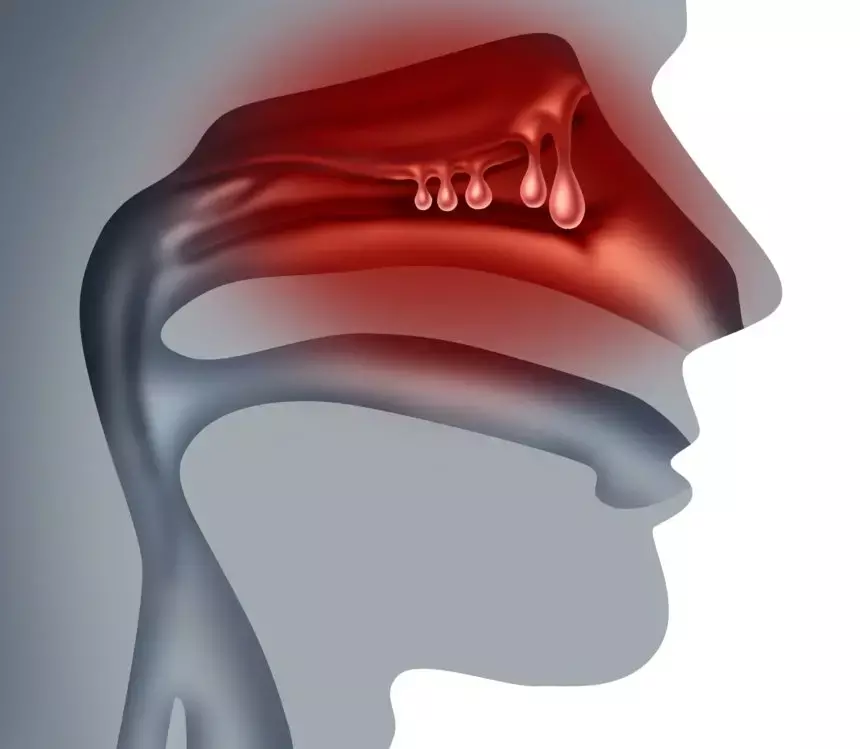- Home
- Medical news & Guidelines
- Anesthesiology
- Cardiology and CTVS
- Critical Care
- Dentistry
- Dermatology
- Diabetes and Endocrinology
- ENT
- Gastroenterology
- Medicine
- Nephrology
- Neurology
- Obstretics-Gynaecology
- Oncology
- Ophthalmology
- Orthopaedics
- Pediatrics-Neonatology
- Psychiatry
- Pulmonology
- Radiology
- Surgery
- Urology
- Laboratory Medicine
- Diet
- Nursing
- Paramedical
- Physiotherapy
- Health news
- Fact Check
- Bone Health Fact Check
- Brain Health Fact Check
- Cancer Related Fact Check
- Child Care Fact Check
- Dental and oral health fact check
- Diabetes and metabolic health fact check
- Diet and Nutrition Fact Check
- Eye and ENT Care Fact Check
- Fitness fact check
- Gut health fact check
- Heart health fact check
- Kidney health fact check
- Medical education fact check
- Men's health fact check
- Respiratory fact check
- Skin and hair care fact check
- Vaccine and Immunization fact check
- Women's health fact check
- AYUSH
- State News
- Andaman and Nicobar Islands
- Andhra Pradesh
- Arunachal Pradesh
- Assam
- Bihar
- Chandigarh
- Chattisgarh
- Dadra and Nagar Haveli
- Daman and Diu
- Delhi
- Goa
- Gujarat
- Haryana
- Himachal Pradesh
- Jammu & Kashmir
- Jharkhand
- Karnataka
- Kerala
- Ladakh
- Lakshadweep
- Madhya Pradesh
- Maharashtra
- Manipur
- Meghalaya
- Mizoram
- Nagaland
- Odisha
- Puducherry
- Punjab
- Rajasthan
- Sikkim
- Tamil Nadu
- Telangana
- Tripura
- Uttar Pradesh
- Uttrakhand
- West Bengal
- Medical Education
- Industry
Mepolizumab May Benefits Patients with Chronic Rhinosinusitis With Nasal Polyps

Mepolizumab improves symptoms in Chronic Rhinosinusitis with Nasal Polyps (CRSwNP), suggests a study published in THE JOURNAL OF Allergy AND Clinical Immunology on February 01, 2021. The study findings were also presented at the American Academy of Allergy, Asthma & Immunology (AAAAI) Virtual Annual Meeting, held February 26 to March 1, 2021.
According to the study, mepolizumab improves nasal discharge, mucus in the throat, loss of smell, facial pain and overall symptoms.
Mepolizumab is an Immunoglobulin G 1 [IgG1], kappa humanized monoclonal antibody (mAB) that blocks human interleukin-5 (hIL-5) from binding to the interleukin-5 (IL-5) receptor complex expressed on the eosinophil cell surface and thus inhibits signalling. Neutralization of IL-5 with mepolizumab has been shown to reduce blood, sputum and tissue eosinophils. Hence, researchers of the GlaxoSmithKline (GSK) assumed that mepolizumab might be a treatment option in a number of eosinophilic diseases, including Nasal Polyps (NP). To test this hypothesis, they conducted a study to assess the efficacy of 4-weekly add-on mepolizumab 100 mg SC on patient-reported symptoms of Chronic Rhinosinusitis with Nasal Polyps (CRSwNP).
SYNAPSE (StudY in NAsal Polyps Patients to Assess the Safety and Efficacy of Mepolizumab) was a randomised, double-blind, placebo-controlled, multicentre, 52-week study of 407 adult patients with highly symptomatic CRSwNP uncontrolled by previous surgery, treated with intranasal corticosteroids. Researchers, on a daily basis, assessed the Nasal Obstruction, Nasal Discharge, Mucus in Throat, Loss of Smell, Facial Pain, Overall Symptoms VAS scores (0-100) and reported as 4-weekly means on 0-10 scale. They used blinded psychometric analyses by prior qualitative research in CRSwNP patients to determine a meaningful within-patient change for each VAS.
Key findings of the study were:
• After 52 weeks, researchers have found thresholds for meaningful change such as -3.0 for Nasal Obstruction, Mucus in Throat, Loss of Smell and -2.5 for Nasal Discharge, Facial Pain and Overall Symptoms.
• They also found the median change from baseline in VAS at weeks 49 to 52 and percentage of responders for mepolizumab and placebo were: Nasal Obstruction -4.41(60%), -0.82(36%); Nasal Discharge, -4.51(64%), -0.85(40%); Mucus in Throat, -4.21(57%), -0.97(36%) ; Loss of Smell, -0.53 (36%), 0.00 (19%); Facial Pain, -3.63(58%), -0.68(40%) Overall Symptoms, -4.48(64%), -0.90(40%).
• Besides, they noted that the loss of smell VAS demonstrated greater improvement for patients with one prior surgery with a median change from baseline of -1.87 for mepolizumab and -0.07 for placebo, while no difference vs placebo was noted in those with 2 or more prior surgeries.
The authors concluded, "Clinically and statistically significant improvements in symptoms were demonstrated with mepolizumab 100 mg SC compared to placebo. Improvement in sense of smell was related to prior history of NP surgery."
For further information:
https://www.jacionline.org/article/S0091-6749(20)32225-9/fulltext
Medical Dialogues Bureau consists of a team of passionate medical/scientific writers, led by doctors and healthcare researchers. Our team efforts to bring you updated and timely news about the important happenings of the medical and healthcare sector. Our editorial team can be reached at editorial@medicaldialogues.in.
Dr Kamal Kant Kohli-MBBS, DTCD- a chest specialist with more than 30 years of practice and a flair for writing clinical articles, Dr Kamal Kant Kohli joined Medical Dialogues as a Chief Editor of Medical News. Besides writing articles, as an editor, he proofreads and verifies all the medical content published on Medical Dialogues including those coming from journals, studies,medical conferences,guidelines etc. Email: drkohli@medicaldialogues.in. Contact no. 011-43720751


